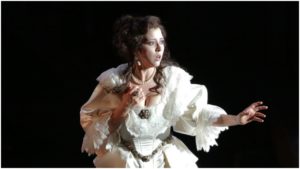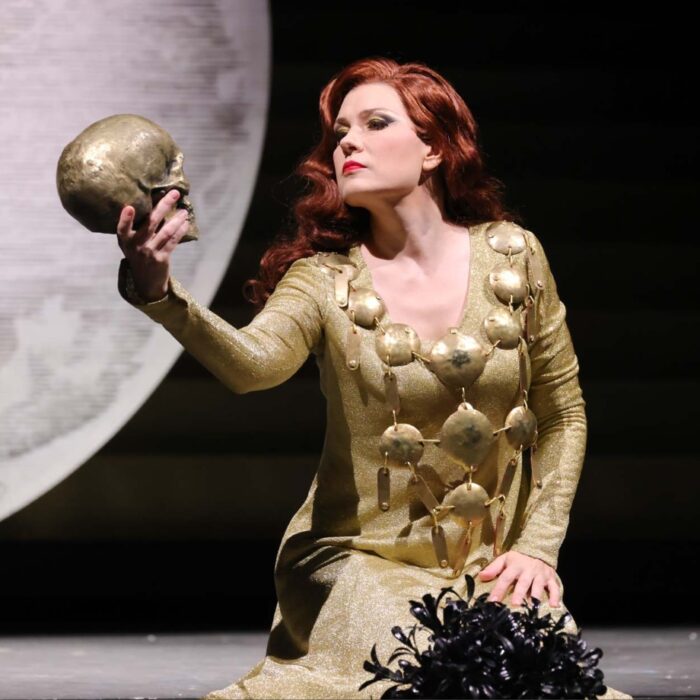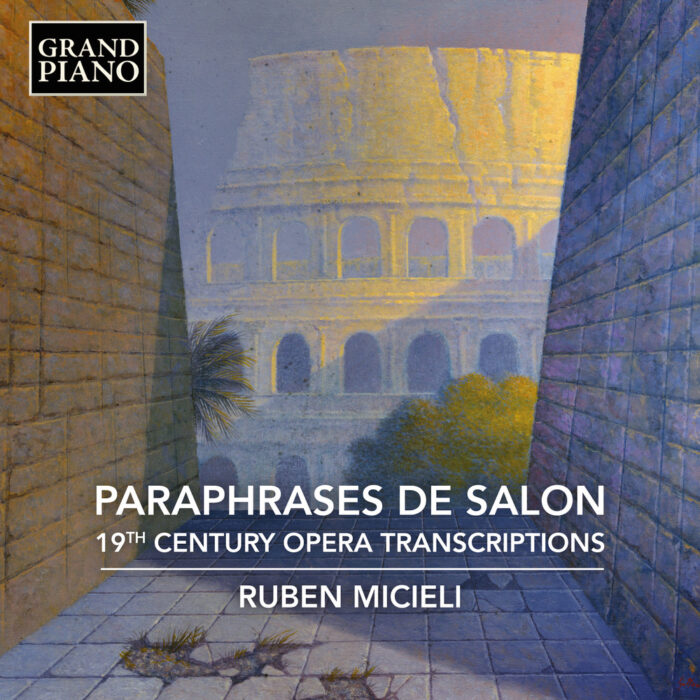
Teatro Alla Scala 2018-19 Review: I Masnadieri
Lisette Oropesa Shines In Troubled Verdi Opera
By Eric Simpson(Credit: © Marco Brescia & Rudy Amisano | Teatro alla Scala)
Seeing an early or unfamiliar work by a major composer can be illuminating—hearing the development of a great talent in a lesser known opera can be as thrilling as a fine performance of a well loved standard.
Or it can simply lay bare the piece’s weaknesses for all to see, as in the case of Verdi’s “I Masnadieri,” which opened in a new production at La Scala last week.
A Troubled Opera
A troubled work, “I Masnadieri” doesn’t hang together nearly so well as Verdi’s later operas. Part of this is surely the fault of the libretto by Andrea Maffei. The opera is an adaptation of “Die Räuber,” Friedrich Schiller’s first major hit, which concerns Carlo Moor, the scion of a noble family who has become the captain of a notorious band of marauding outlaws. Meanwhile his younger brother, Francesco, schemes to send their father to usurp the family title, marry Carlo’s betrothed Amalia, and send their father to an early grave.
In Maffei’s flat libretto, Francesco comes of as a cartoonish villain while Carlo, a mass murderer who puts the entire city of Prague to the torch, is cast as a troubled romantic.
For Verdi, too, “Masnadieri” is a struggle; his music is spirited and technically accomplished, but it lacks the ingenious musical characterizations and melodic inspiration of even earlier works like “Ernani” and “Macbeth,” to say nothing of the many masterpieces that came later.
A Troubled Vision
The new Scala production directed by David McVicar is hardly clarifying. McVicar’s instinct to explore the opera’s ugly side is not a bad one; indeed, what makes the opera so difficult to connect to today is its expectation that the audience will indulge the central conflict between an idealized honor culture and true love, while cheerfully ignoring the gobsmacking heinousness of the main protagonists’s misdeeds.
Take the Act three chorus “Le rube, gli stupri, gl’incendi, le morti,” which finds the robber band singing a toe-tapping celebration of pillage, rape, and murder. The scene demands irony at the very least, if not outright brutality. McVicar starts off in the right direction by casting the dance as a frenzied bacchanal, aiming to show the men carried away from their humanity by their excesses—but the aimless writhing and “dabbing” in Jo Meredith’s choreography seem more juvenile than transgressive.
In the larger sense, McVicar’s vision fails because he tries to seize on specific conceits that come off as bizarre or simply inscrutable. The great hall of Count von Moor’s castle serves as the setting for the entire opera, in greater disrepair as time goes on.
The chorus, meanwhile, is made up in equal parts of the black-clad robbers and coiffed nobles cheering them on: no doubt there’s a clever statement here about how the upper classes are really indistinguishable from highwaymen, but on the stage it just looks as though all the choristers had free run on the costume rack.
Strangest of all is the silent actor always present with a sheaf of parchment, variously looking on in confused horror, shadowing Carlo, or fondling Amalia. He seems to be partly a psychological mirror of Carlo and partly a stand-in for Schiller, yet neither idea is meaningfully explored.
Untroubled Singers
As one might expect, though, these performances are redeemed by the extraordinary musical quality of the company and the singers.
Fabio Sartori led the cast as Carlo, sporting a dark-tinged tenor. He occasionally sounded stretched at his top, but on the whole he boasted an impressive mix of robust texture, caramel color, and brilliant ring. Sartori maintained a brooding intensity throughout the performance, occasionally bursting through in flashes of aggressive energy.
Massimo Cavalletti made an imposing presence as Francesco, occasionally sounding a little underpowered but making up for it with his rich barolo tone and fierce declamation. He was especially gripping in “Pareami che sorto da lauto convito,” his terrifying account of his guilt-ridden nightmares.
Michele Pertusi was marvelous as Massimiliano, the aging Count Moor, crafting a poignant image of the weary father. His rich, cavernous bass ached with emotion from beginning end, always believing himself betrayed by one son or the other, and feeling the sting deeply. “Un ignoto,” his keen lament at the end of Act three, earned the loudest cheers of the night.
The Superstar Stands Out
Even among such an superb cast, Lisette Oropesa stood out: her striking performance as Amalia demonstrated that she has graduated fully from soubrette roles to more demanding lyric ones without losing any of the astonishing flexibility of her voice. Equally comfortable in arias and cabalettas, she moved effortlessly between nimble, fluttering coloratura and arching lyrical phrases.
“Lo sguardo avea degli angeli,” her gorgeous Act one aria, showed a shining instrument, buttery in her middle register and full at her top, with a lively vibrato and elegant diction.
The orchestra of La Scala sounded luminous in a crisp, buoyant reading of the score realized by Michele Mariotti. The lively energy he brought to the music offered a welcome counterpoint to the overall dreariness of the drama and staging.
One of the opera’s loveliest melodies comes in the extended cello solo in the overture, which comes close to resembling the slow movement of a concerto. Massimo Polidori gave a memorable rendition, rich in emotion.
Despite the opera’s troubled nature and representation, the artists and their incredible musical interpretations made this presentation truly worthy.


